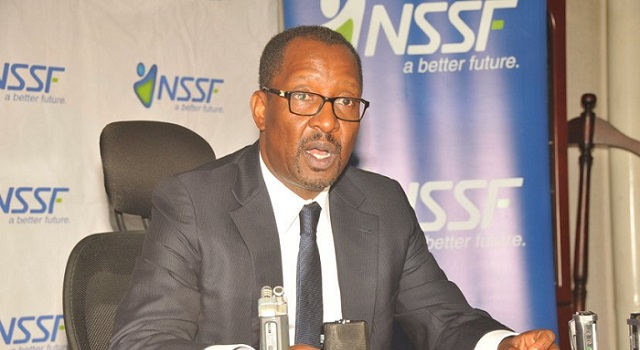
Kampala, Uganda | THE INDEPENDENT | National Social Security Fund- NSSF wants the laws governing its investments amended to allow the fund to lend money to local governments.
This comes after the local government officials and a UN official called for the empowerment of local governments to negotiate their loans and borrow instead of relying on financing secured by the central government.
Local governments have always blamed the long bureaucracy involved in the procurement process for the failure of many projects, with some funds being secured when the need for the investment has already been overtaken by time or events.
Yet, the districts and municipalities, some of which have just been elevated to cities, are usually in need of money to fund their infrastructure programs, especially roads and bridges. Only Kampala has been able to borrow from commercial banks.
The Head of the United Nations Capital Development Fund in Uganda, Dmitry Pozhidaev, says the decentralization policy of the government gives local governments some authority to manage their issues but not the finances.
He says if they are to be self-sustaining entities and be able to achieve their goals and help the country achieve national and UN sustainable development goals, they have to be empowered.
The National Social Security Fund, which is the biggest single local lender to the central government, says they are ready to lend to districts and cities if they are allowed by the laws to do so.
Currently, the NSSF mainly lends to the government by buying treasury bonds. Under this, the government, through the Bank of Uganda invites interested persons, individual or organizations to buy these papers and on return, the government re-pays the paper holder their money, with some interest.
However, NSSF is limited to how much they can lend to the government, which is 80% percent of its assets.
Speaking at the two-day Economic Mkutano 2020, a national economic policy forum, the Director for Investments at NSSF, James Kasato said if they can have the laws adjusted, the fund can come to the rescue of the local governments with long-term financing, especially for infrastructure.
While the local government leaders would be excited about this, they are not sure that the laws can be amended.
Local governments have also been cited as one of the major hot spots for corruption and allowing them to contract debt, might be seen as risky business.
Majid Batambuze, the Chairperson of the Urban Authorities Association of Uganda says, currently, even if banks or NSSF opened up to lending, there is no local government, apart from Kampala that would qualify because they have no capacity.
He gives an example of the lack of statistics or proper documentation of their activities that the lenders usually ask for.
********
URN
 The Independent Uganda: You get the Truth we Pay the Price
The Independent Uganda: You get the Truth we Pay the Price


